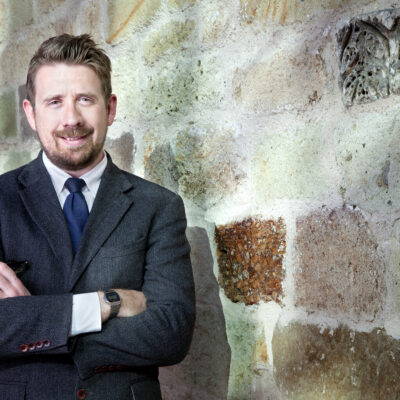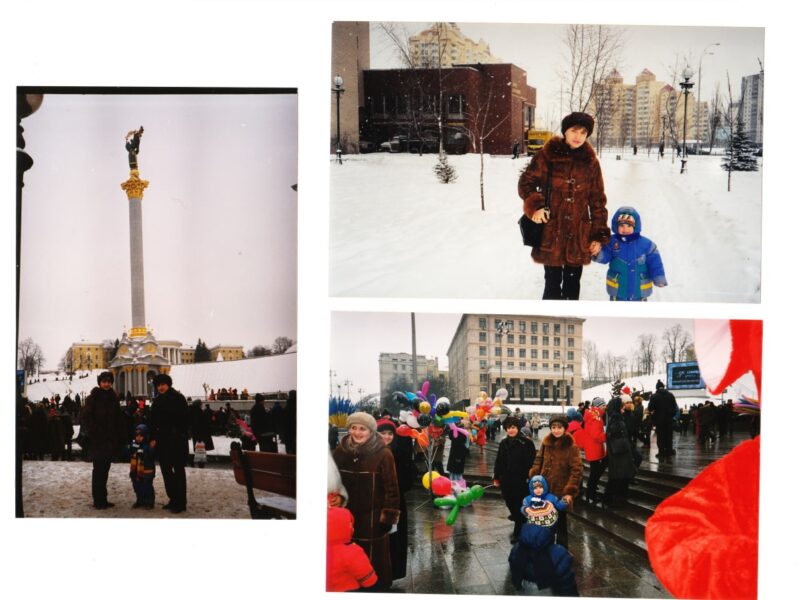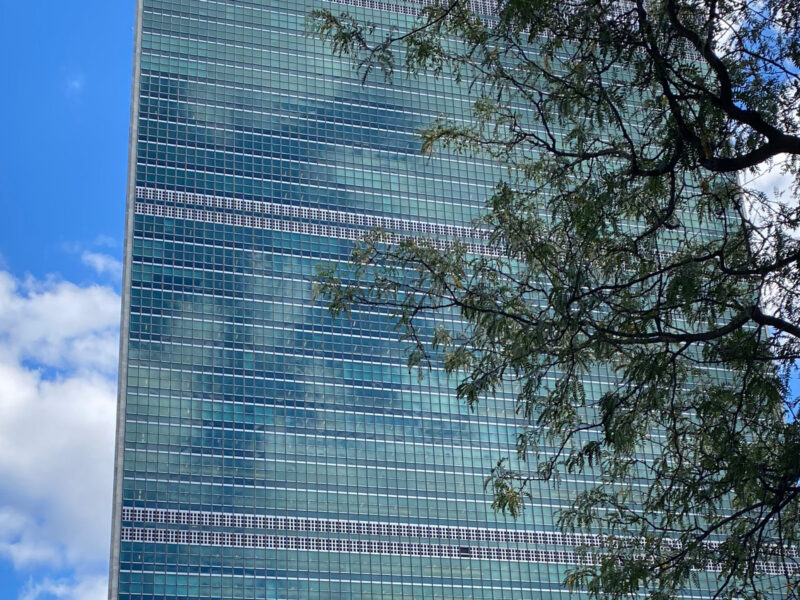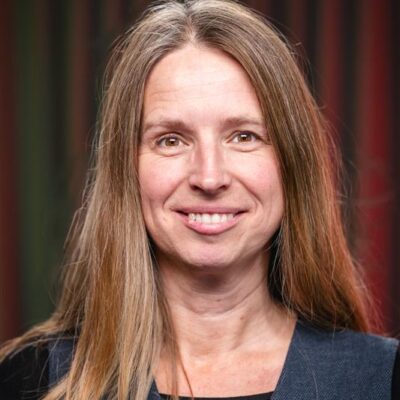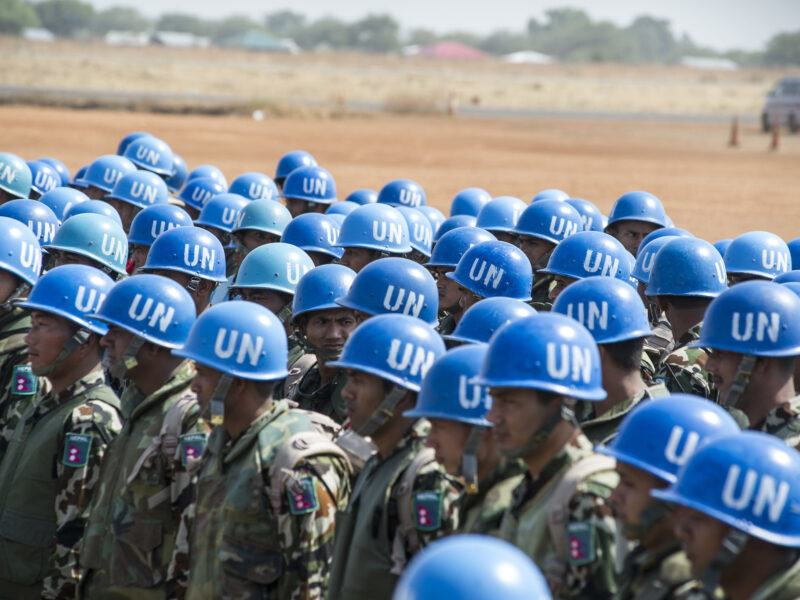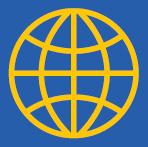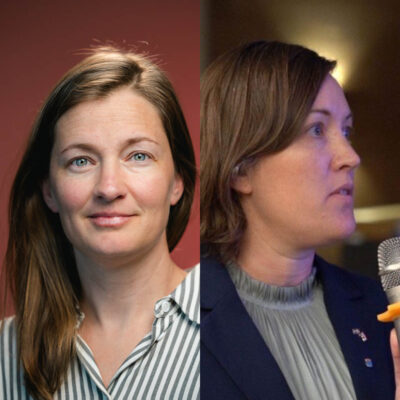Back ‘home’ in Kosovo and remembering old lessons
The distinct smell of coal dust creeps into your nose as soon as you step off the plane in Pristina, a strange and familiar welcome back greeting for those of us intimate with this small corner of Europe. I felt it again in November 2017 when I came to Kosovo for a few days of visiting old friends and colleagues. For anyone with strong memories of living in a foreign country, you will remember the joys of returning to one of your ‘homes’ on earth, walking down familiar streets and remembering ancient shortcuts, small cafes, friendly people, and anonymous locations associated with good and bad memories alike. If anything, it reminds you that home really can be any place in the world.
Another reason for my visit was a personal project, an internship scheme in Kosovo for visiting American MA students that I have helped design and implement since 2016. This project, besides being an enjoyable and interesting way to introduce students to international policy and development in the field, allows me to ‘check in’ on my former life as FBA’s Security Sector Reform Adviser to the Kosovo government, and to reflect on what the international community accomplished (and didn’t accomplish) in this young country in the years I was there.
In some ways nothing has changed, neither since 2010 when I first came to Kosovo, nor since 2016 when I stopped working here. If you ask anyone in Pristina, they will tell you that endemic, chronic unemployment still plagues this country, and that the strongly linked burdens of corruption and organised crime still help to strangle economic activity and security in many cities and towns. Political parties still spend most of their efforts fighting for power and resources, rewarding their own members and power bases above all. Governments have come and gone over recent years and failed to pass essential legislation on border demarcation and addressing corruption, requirements of the EU for granting long-desired Visa-free travel to the EU. Meanwhile the EU Mission in Kosovo (EULEX) sent in 2008 to tackle rule of law challenges and pursue high-level corruption, organised crime, and war crime cases is mired in scandals of its own. Indeed Kosovo’s challenges are serious and tough to solve, and there is no quick fix for problems rooted in poverty and ethnic strife that festered for decades before erupting into war in 1998.
What does seem to announce change in Kosovo is precisely the diminished presence of the international community however. Compared to 2010, evidence of the once massive international presence here is now much harder to find. The city was once a village of soldiers, international advisers, police, legal experts, and staffers of the UN, EU, NATO, and OSCE. All of these actors are still here, but in diminished numbers both on the streets and in the familiar haunts of the city. Indeed the attention of the international community has mostly moved on in response to crises in Ukraine or the Middle East, leaving offices leaner on both resources and ambitions. Is this a bad thing? I’m not sure.
The positive effect of international aid or support rarely seems to correspond to the number of staff involved, but rather to having the right staff in the right place, and the right influence in the right place to build capacity, experience, and sustainability. Indeed, the task of making Kosovo institutions function correctly, to respond to needs of the population for security, rule of law, and employment, must lie with the Kosovars themselves, including institutions, politicians, and the voters holding them to account. In this area I would say there is a real change, as political debate now rarely puts the international community in the centre of debates over Kosovo’s challenges, but rather politicians themselves, who earlier have been happy to shift attention (and blame) for long-running problems onto outside actors. With fewer outsiders to blame, politicians may find that change will be forced upon them in future.
For my own part, memories of Kosovo usually involve my own struggle to find a way to both advise and assist as a western ‘expert’, while focusing on empowering the institutions and individuals I worked with to live up to their own ambitions and the hopes of normal citizens. Two years ago I wrote that ‘reform is neither a sprint nor a marathon… it’s both.’ I still believe that this is true. International governments, aid agencies, NGOs and other stakeholders can’t hope to provide quick impact on long-term challenges without taking the time to know or understand their colleagues and their unique challenges. Sustainable reform in areas like state-building, governance, security and rule of law institutions require intelligent, coordinated, and reliable support, building our credibility and trust gradually to make clear to colleagues and political actors in the country that we are committed to partnering up to help each other. However if this commitment comes without clear objectives and goals linked to our support, neither side is fully focused on an end goal and cannot hold each other to a high standard. Beyond that, governments, agencies, stakeholders, and individuals should work together more, rather than running their own races in isolation from each other. Even as a single adviser from Sweden, I struggled to coordinate my efforts with broader development projects and political goals, seemingly existing in different worlds despite our stated common goals. If Kosovo is like many other development settings, this lack of coordination alternatively caused confusion and exasperation for some Kosovars, and led to unhealthy relationships and exploitation by others.
What has changed in Kosovo is subtle but real. Capacities within the government have changed and improved, as individuals have had the chance to develop and improve their skills with the aid of the international community. Massive international operations like EULEX have investigated, prosecuted and tried thousands of criminal cases and added to Kosovo’s ability to do so in the future. Meanwhile, international organisations, NGOs, development agencies, and individuals have, in countless good deeds, left behind good works whose efforts will, I believe, bear fruit in the future. Perhaps the most remarkable thing of all in the end, is one thing that hasn’t changed. Kosovo itself is still there, and will celebrate 10 years of independence in February 2018. Hopefully I will have a chance to make it to the celebrations.
av Andreas Berg
